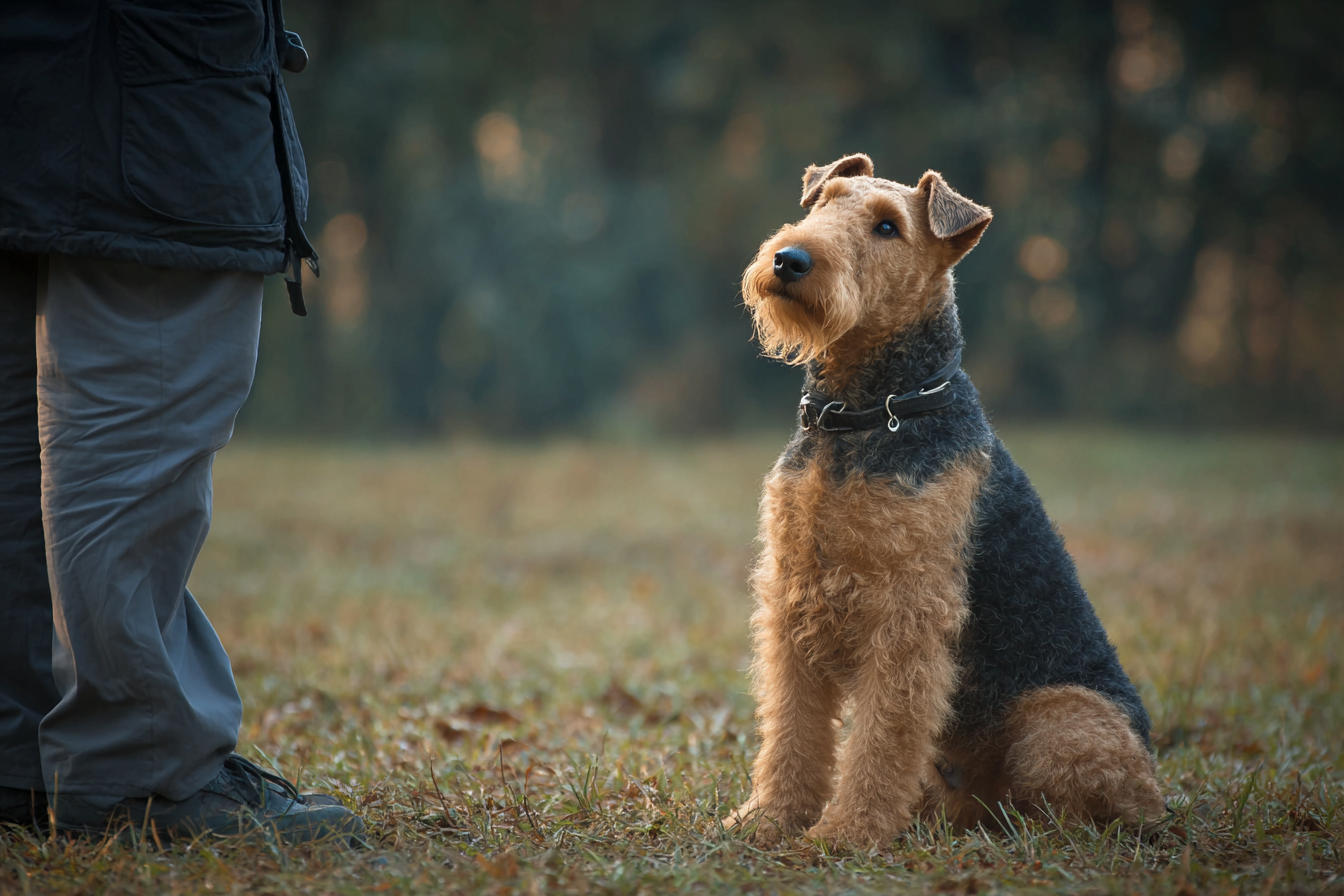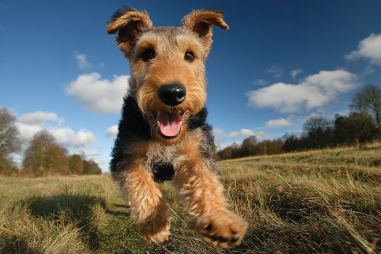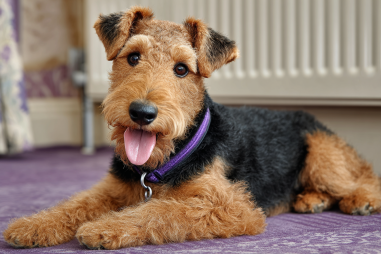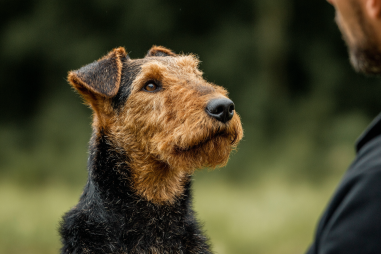Training an Airedale Terrier can be a rewarding experience for new dog owners. Known as the “King of Terriers,” this breed boasts a combination of intelligence, energy, and loyalty that makes them both wonderful companions and sometimes challenging trainees if not approached with the right methods. To help you cultivate a strong and positive relationship with your Airedale, this comprehensive guide will explore everything from foundational obedience commands to nuanced socialization techniques and behavior management tailored specifically for this unique breed.
Understanding Airedale Terrier Intelligence and Temperament
Airedale Terriers are highly intelligent dogs, often ranking among the smartest of the terrier group. Their keen minds make them quick learners but can also lead to boredom if training sessions are not mentally stimulating. These dogs thrive on tasks and challenges, so it’s important to engage their brain regularly. Temperament-wise, Airedales are confident, alert, and curious. They tend to be spirited and sometimes independent, which means they may test boundaries. However, their affectionate nature makes them deeply loyal to their families and eager to please when given proper guidance.
Basic Obedience Commands
Starting with the basics is critical in training your Airedale Terrier. Foundational commands such as “sit,” “stay,” “come,” and “down” form the groundwork for good manners and safety. When introducing these commands, keep training sessions short but frequent—about 5 to 10 minutes several times a day works best to keep your dog focused without overwhelming them. Use clear, consistent verbal cues paired with hand signals. Because Airedales can be independent thinkers, patience and repetition are necessary to ensure they understand and obey these commands reliably.
House Training Essentials
House training is an essential step in welcoming your Airedale Terrier indoors. Start by establishing a regular schedule for feeding, potty breaks, and playtime, as predictability helps your puppy associate certain times with bathroom needs. Crate training can be particularly effective for this breed, providing a safe space and aiding bladder control. Always supervise your Airedale when off-leash and reward them immediately for eliminating in the correct spot. Accidents are part of the process, so avoid punishment—gentle redirection and consistency will yield better results.
Leash Walking Techniques
Leash walking can sometimes pose challenges with an energetic breed like the Airedale Terrier. Teaching loose-leash walking from an early age reduces pulling and helps maintain control during walks. Begin by using a properly fitted collar or harness, ideally with a front-clip attachment for better steering. Use treats or praise to encourage your dog to walk by your side. If the dog pulls, stop walking and wait for the leash to slacken before moving forward again—this teaches them that pulling stops progress. Consistency and positive reinforcement are key to enjoyable walks for both you and your Airedale.
Socialization Tips with People and Pets
Airedale Terriers are naturally curious and, when well-socialized, are typically friendly and confident around people and other animals. Early and regular socialization helps prevent shyness or aggression. Expose your pup to a variety of environments, sounds, and experiences in a controlled and positive manner. Introduce them to different people, including children and strangers, and supervise interactions with other dogs or pets to encourage appropriate behavior. Group training classes or puppy playgroups offer excellent socialization opportunities and can build your dog’s confidence and social skills.
Handling Common Behavioral Challenges
Like many intelligent dogs, Airedales may develop certain behavioral challenges if their physical and mental needs aren’t met. Common issues include chewing, barking, digging, and stubbornness. Address these by providing plenty of exercise, interactive toys, and mental enrichment games. Redirect undesirable behaviors to acceptable alternatives—for instance, offer chew toys to prevent destructive chewing. For barking, identify triggers and desensitize your dog gradually to reduce their reactivity. Patience and consistent management are crucial since harsh corrections can damage trust with this independent breed.
Positive Reinforcement Strategies
Positive reinforcement remains the cornerstone of effective Airedale Terrier training. Reward-based methods motivate your dog and foster a strong bond of trust. Use high-value treats, praise, or playtime as rewards for obeying commands or displaying desirable behaviors. Timing is essential—reward immediately so your Airedale associates the reward with the correct action. Avoid punishment or negative reinforcement, as these can increase anxiety or aggression. Instead, focus on encouraging good behavior and calmly redirecting mistakes.
Training Tools and Equipment
Choosing the right tools can make your training efforts more efficient. Recommended equipment includes:
- Crate: Useful for house training, providing security, and managing behavior.
- Harness or collar with ID tags: Ensure safety during walks and outings.
- Leash: A 4 to 6-foot leash offers control without too much slack.
- Treat pouch: Convenient for quick rewards during training sessions.
- Interactive toys and puzzle feeders: Promote mental stimulation and prevent boredom.
While some owners may consider training clickers, these can be helpful to mark desired behaviors, but they are not necessary if you use verbal cues with consistent enthusiasm.
Maintaining Consistency and Patience
Success in Airedale Terrier training hinges on consistency and patience. Use the same commands, rewards, and routines daily so your dog knows what to expect. Involve all family members in training to prevent confusion and mixed signals. Understand that progress may be gradual, especially as Airedales have a mind of their own and can test limits. Keeping a calm, positive attitude during training fosters trust and cooperation. Celebrate small victories, and remember that setbacks don’t mean failure—they are part of the learning journey for both you and your dog.
Helping Your Airedale Thrive Through Training
Training your Airedale Terrier sets the foundation for a happy, well-behaved companion. This breed thrives on mental stimulation, clear boundaries, and affectionate guidance. By understanding their intelligence and temperament, employing positive reinforcement, and addressing behavioral issues thoughtfully, you can nurture a lifelong bond. Explore local training classes, online resources, and experienced trainers if you need additional support. With commitment and care, your Airedale will grow into a confident, obedient, and joyful member of your family.







